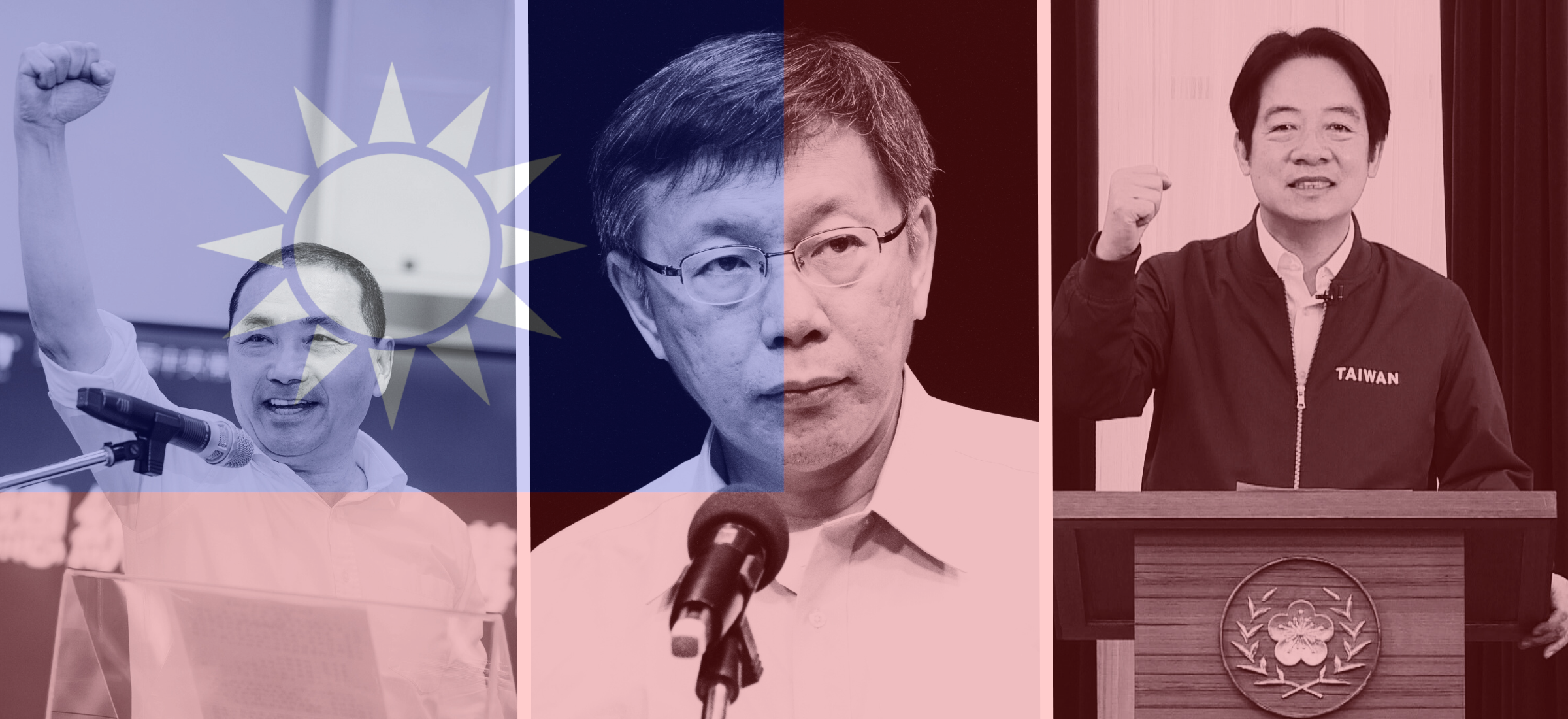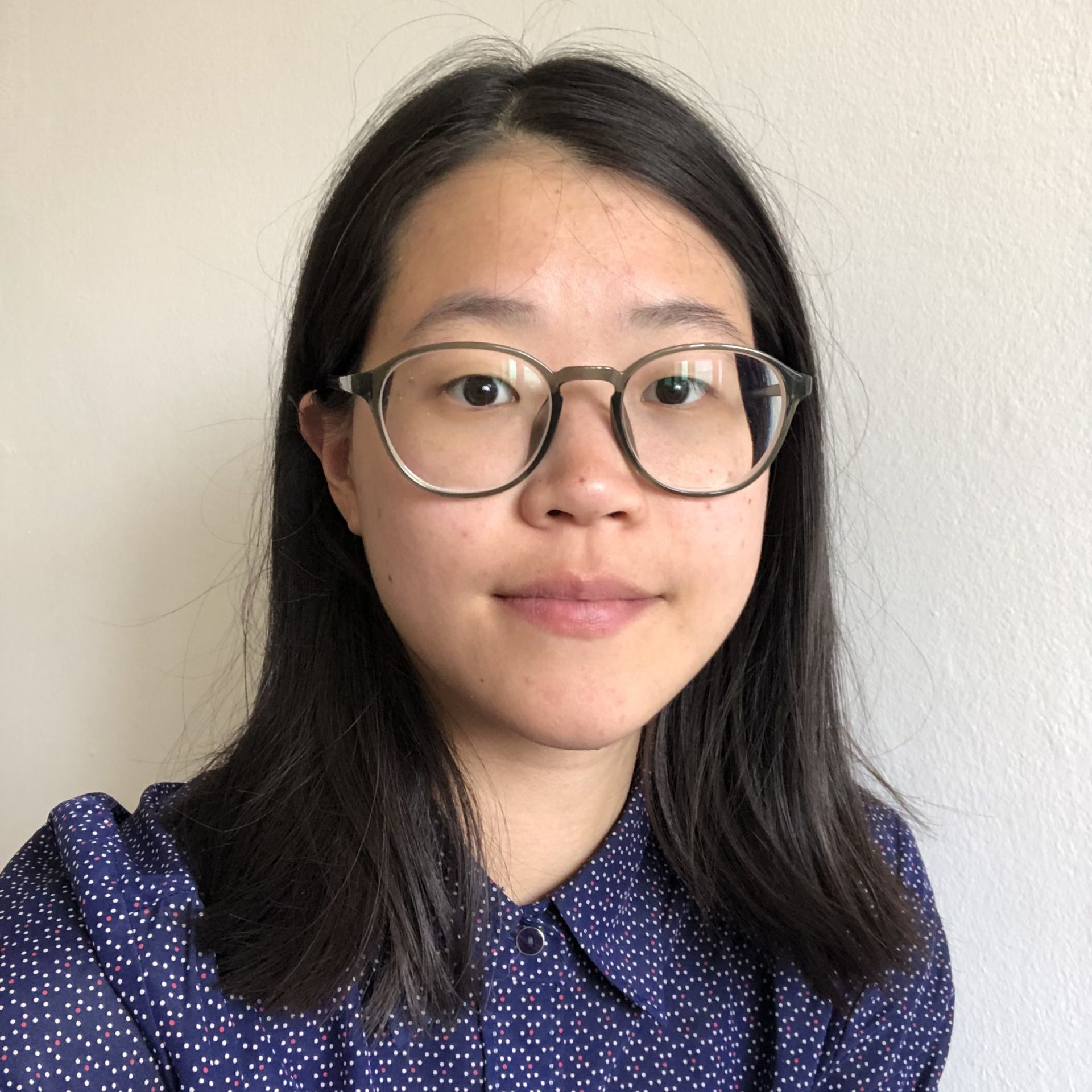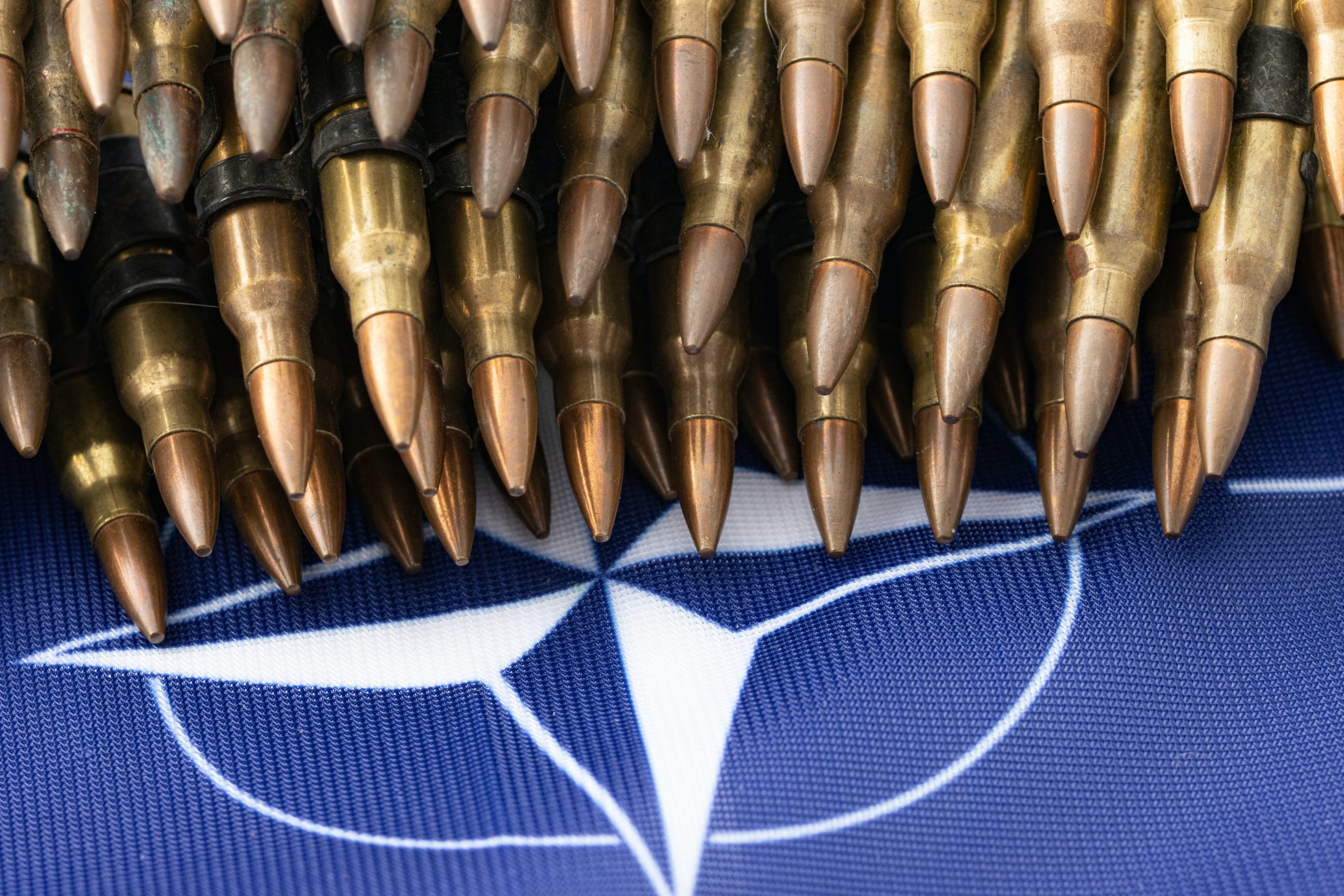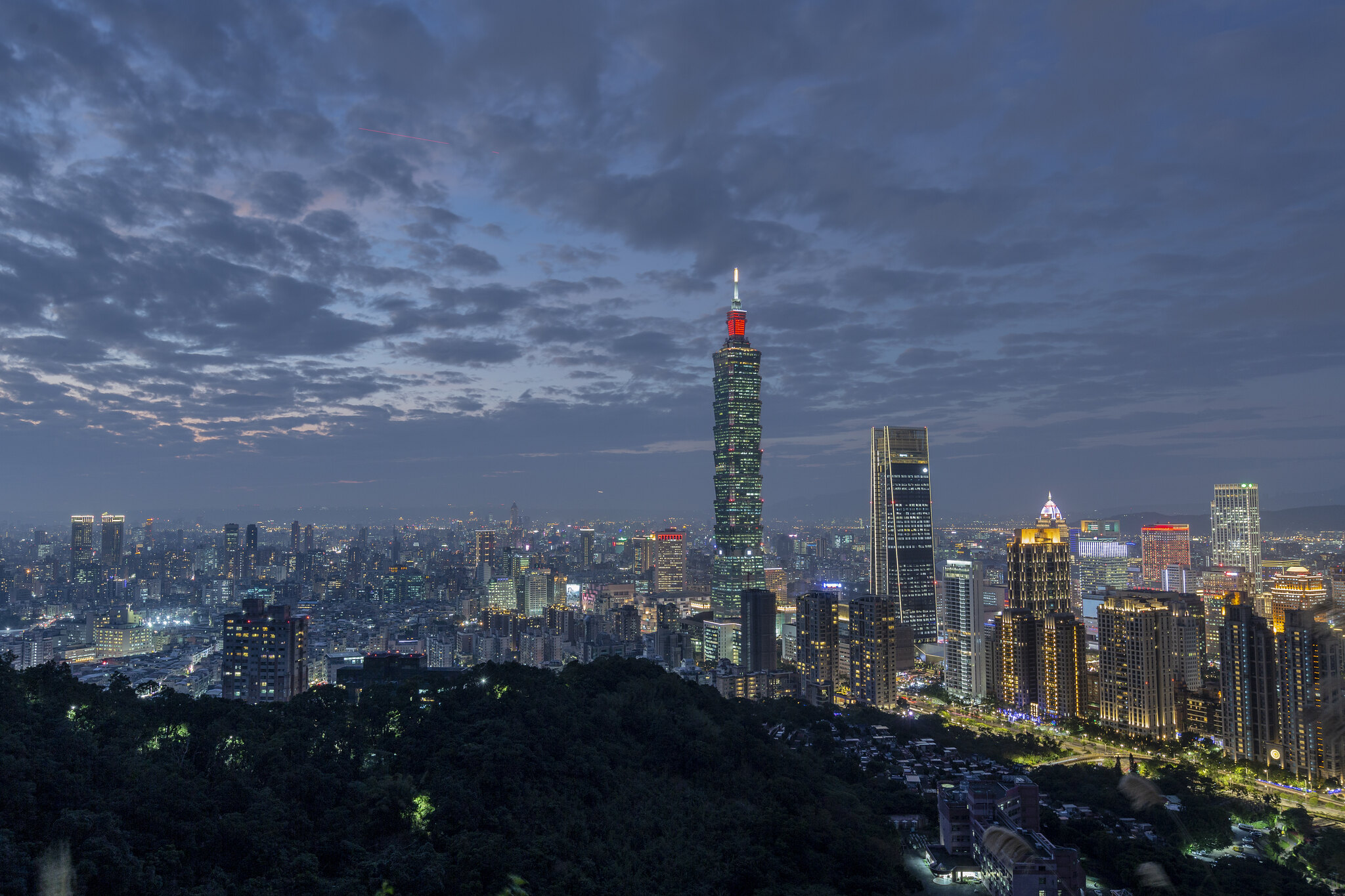Taiwan’s upcoming presidential and parliamentary elections feature three candidates with distinct backgrounds and approaches. Defense policy, Taiwan-US relations, and Taiwan-Japan relations are key campaign issues, with potential implications for the island nation’s future stability and international standing.
Election campaigns for Taiwan’s upcoming presidential and parliamentary elections next January are already in full swing. Three parties have fielded their candidates for Taiwan’s top political job and their profiles could not be more different. Only one candidate, Vice President Lai Ching-te from the Democratic Progressive Party (DPP), can draw on extensive experience in national politics, international negotiations, and diplomatic affairs. The other two contenders—Hou Yu-ih from the Nationalist Party (KMT) and Ko Wen-je from the recently founded Taiwan People’s Party (TPP)—had long and successful careers in medicine and law enforcement, respectively, before they embarked on careers in politics in the 2010s. As mayors of two big and important northern municipalities, Taipei City and New Taipei City, the two enjoy high popularity but lack experience in local politics and subnational diplomacy. The three candidates’ stances on foreign policy, cross-Strait relations, and related policy matters overlap but their approaches are distinct, as would be the consequences for Taiwan depending on who comes out victorious.
The findings of our analysis can be summarized as follows:
- For the first time in the history of Taiwan’s democratic elections, all presidential candidates share a Taiwanese background (benshengren), meaning they are descended from those who settled on the island prior to or during the Japanese colonization. That includes Hou, the presidential candidate of the KMT, a party whose members and voters have historically had a family background that reflects migration from the mainland during and in the aftermath of the Chinese Civil War (1945-1949). This is one but not the only reason why Hou lacks unequivocal support within the party and its voter base.
- All candidates adopt a moderate, “pragmatic” approach in cross-Strait relations, advocating for the maintenance of Taiwan’s status quo: that is, de facto autonomy of Taiwan under the denomination of the Republic of China (ROC) without seeking formal independence nor accepting unification with the People’s Republic of China (PRC) ruled by the Chinese Communist Party (CCP) and its proposed model of “one country, two systems”. Ko’s pragmatism is not bounded by ideology, whereas Hou and Lai are struggling to match their own versions of pragmatism with the ideologies of their respective parties (or factions). Hou is the only candidate to endorse the controversial “1992 Consensus” that Beijing has set as a precondition for resuming official dialogue with Taiwan. Moreover, through powerful representatives of the deep-Blue faction within the KMT Hou has guaranteed access to the Chinese leadership. However, these connections come with liabilities and could eventually affect foreign relations with the United States and Japan.
- Defense policy has gained particular momentum in the campaigns for next year’s elections. Candidates agree on the necessity of enhancing Taiwan’s self-defense capacities to deter China and protect Taiwan in the event of a military attack or blockade by the PRC. According to Lai, improving military capabilities and strengthening alliances as well as economic relations with like-minded countries are the key to deterring China from military adventurism. Hou and Ko seek more exchanges in the economy, education, and other fields as well as the resumption of high-level diplomatic dialogue with China to attenuate tensions and maintain peace in the Taiwan Strait. Hou’s detailed deterrence strategy, as outlined in his op-ed in Foreign Affairs, is remarkable and has garnered widespread attention. It remains to be seen whether this will affect public perceptions in the upcoming months.
- Candidates have expressed and demonstrated their commitment to Taiwan-US relations with personal visits to the United States. However, Washington has reasons to be skeptical of all three. Lai’s comments have been interpreted by some American observers as signaling a potential deviation from the current moderate policy of President Tsai Ing-wen. Hou lacks familiarity with the United States and depends on influential advisors from the KMT’s moderate faction and their connections in Washington. Import bans of American meat and the prioritization of closer relations with the PRC during the eight years of Ma Ying-jeou’s presidency (2008-2016) still cloud KMT-Washington relations, especially because Ma and his faction continue to exert considerable influence within the party. Ko does not guarantee the United States its position as the undisputed pivot in the strategic triangle between Taiwan, China, and the United States as he stresses the importance of maintaining equally constructive relations with both sides. His comments on managing them in a “dynamic equilibrium” have raised questions about what this would mean in practice. We expect him to handle relations with both the United States and China more flexibly, as Ko is not bound by ideology and factional politics.
- Japan is a critical node and an important ally in Taiwan’s relations with other countries in the Indo-Pacific. Bilateral relations have gained fresh momentum in the election campaigns. All candidates have proactively reached out to representatives of the Japanese government, and have either visited Japan themselves (Ko and Hou) or met with Japanese officials who visited Taiwan (Lai). Ko and Hou have capitalized not only on the momentum of a historical shift in Japan’s foreign policy, which views the PRC as a growing threat to stability and peace in the region, but also on efforts undertaken by the DPP government and Vice President Lai to substantiate these bilateral relations during the past years. We expect Taiwan-Japan relations to be strengthened under all three presidents, even though Hou’s promises are overshadowed by those unfulfilled under former President Ma Ying-jeou.
- Relations with European countries have not featured prominently in the campaigns, but the ongoing war in Ukraine and the EU and NATO’s support for Ukraine continue to influence Taiwanese perceptions of security and, thus, the importance of forging close relations with like-minded (that is democratic) countries as part of Taiwan’s overall defense and deterrence strategy. Although regional partners, especially Japan, have undisputed priority in foreign relations, we expect candidates to continue to substantiate relations with European countries. Nonetheless, the absence of Taiwan-EU relations in the political discourse and the candidates’ decision to not include Brussels or any other European capital with bigger diaspora communities in their travel plans should make EU policymakers reflect their own positions and the extent of their desired influence on geopolitics, the center of which has undoubtedly shifted to the Indo-Pacific.
- At the time of writing, Foxconn founder Terry Gou announced to run as an independent candidate, adding further dynamic momentum to the election campaigns. Gou presented the actress Tammy Lai who became famous in the political drama Wave Makers as his running mate. Due to the lack of party affiliation, the two must collect around 290,000 signatures by 2nd November to be officially admitted by the election authorities. Gou is popular but performs poorly in the public opinion polls. Many observers (including TPP frontrunner Ko) agree that if Gou becomes the fourth candidate, he will further divide the “pan-Blue” vote, thus increasing Lai’s chances to win the presidential election.









